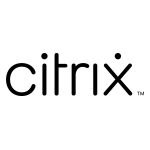
Citrix® Uncovers What Employees Really want in 2021
Latest research shows flexibility, agility, diversity and a superior experience will be key to attracting and retaining talent
FORT LAUDERDALE, Fla.–(BUSINESS WIRE)–#CitrixIsHow–Few employees are interested in adding to the upheaval the global pandemic has created in their lives by changing jobs. But when it eventually subsides, many will be open to exploring their options. And a new study reveals what they will be looking for. According to the latest research from Citrix Systems, Inc. (NASDAQ:CTXS), workers believe flexible models, digital technology, diversity and inclusion and learning and development will drive the future of work. And they will seek opportunities with companies that share their vision and give them the space and tools they need to succeed and advance their careers.
“As the economy gears up again and the job market begins to make a recovery, we’re likely to see a surge in people seeking new roles,” said Tim Minahan, Executive Vice President of Strategy, Citrix. “But the pandemic has forever changed the way employees view and approach work, and if businesses want to attract and retain the talent they need to move forward tomorrow, they must understand their mindset and desires and develop plans to accommodate them today.”
To help them do this, Citrix undertook the Talent Accelerator, a survey of 2,000 knowledge workers and 500 HR Directors in large, established corporations and mid-market businesses based in the US conducted by Censuswide. Done in connection with the Work 2035 Project, an ongoing initiative in which Citrix is partnering with enterprises, governments and academia to understand the future of work and create frameworks, solutions and skills to ensure that organizations – and entire economies – can adapt to the new world order and use it to their advantage, the measure sought to understand how both employees and HR directors see the future of work and the actions companies will need to take to deliver it.
And it revealed significant gaps in their views. Among the key findings?
Digital Nomads
Now, more than ever, employees want flexibility in where, when and how they work. In fact, 88 percent of those workers surveyed as part of the Talent Accelerator said that when searching for a new position, they would look for one that offers complete flexibility in their hours and location. And 76 percent believe that employees will be more likely to prioritize lifestyle over proximity to work, even if it means taking a pay cut. According to the Talent Accelerator:
- 83 percent of employees and 69 percent of HR directors think that workers will be more likely to move out of cities and other urban locations if they can work remotely for a majority of the time.
- 78 percent of workers and 67 percent of HR directors predict that the geographical decentralization of organizations will result in the creation of new work hubs in suburban/rural areas in the next 12 months.
In addition, the majority of employees surveyed are of the opinion that flexible work models will ultimately become the norm in the year ahead.
- 83 percent predict that, in response to global skilled talent shortage, companies will leverage flexible work models to reach out to suitable candidates no matter where they live. Yet only 66 percent of HR directors feel the same.
“As the global battle for talent heats up, companies will need to embrace more flexible models for work that allow them to meet employees where they are in order to position themselves to win,” Minahan said. “Companies that leverage technology to enable remote work can not only attract hard-to-find talent, but increase employee engagement and boost their productivity. And this research proves it.”
Virtual Reality
While the pandemic and the remote work mandates associated with it have physically separated workers, technology is proving its worth and keeping them connected, engaged and productive. As the Talent Accelerator discovered:
- 89 percent of employees believe that technology makes workers within their organization more productive.
- 86 percent of employees and 69 percent of HR directors report that business leaders in their organization are using technology to collaborate effectively and innovate.
- On average, around two thirds of employees and HR directors say they feel more connected to their direct manager, CEO, senior management team, and peers when working remotely than when working in the office.
- 73 percent of employees and 72 percent of HR directors think the increased use of technology in the future will break down hierarchies and lead to more open communication with business leaders and senior management teams that may advance their careers.
“Organizations that provide employees with digital tools that remove the friction from work and enable them to be and do their best are the ones that will ultimately thrive,” Minahan said. “Because when employees feel empowered by the solutions they use rather than hamstrung by them, they can focus, innovate and deliver value.”
Outcomes over Output
In the future, companies will need to rethink how they measure productivity because traditional metrics – and views that real work can’t get done outside the office – will no longer cut it. According to the Talent Accelerator, modern employees want to be measured on the value they deliver, not the volume. And they expect to be given the space and trust they need to do their very best work, wherever they happen to be.
- 86 percent of employees said they would prefer to work for a company that prioritizes outcome over output, but just 69 percent of HR directors say that their company currently operates in this way.
- 69 percent of workers say they are more productive – by an average of 72 percent – when they feel their employer trusts them to get the job done without monitoring their progress; while 51 percent of HR directors think that their organization would be more productive as a whole if their employer/senior management took this stance.
“Work is no longer about getting the most out of people, but the best,” Minahan said. “Forward-thinking companies recognize this and will focus on designing people-centric experiences that unlock the full potential of their employees and empower them to deliver transformative results.”
Career Agility
The pandemic has upended the very way we live and work. New roles are fast emerging to support new business models sparked by changes in customer preferences and needs, and upskilling and reskilling will be critical factor in keeping pace. As the Talent Accelerator found:
- 82 percent of employees and 62 percent of HR directors believe that workers will need to hone their current skills or acquire new ones at least once a year in order to maintain competitive advantage in a global job market.
- HR directors believe that ensuring an organization has the latest collaborative technology in place to enable agile learning is the most important factor in recruiting and retaining the best talent, and 88 percent of employees confirm this notion, saying that they look for this when searching for a new position.
“As the battle for talent heats up, it will be important for organizations to focus on cultivating the talent they already have, as well as recruiting externally,” Minahan said. “Organizations that prioritize reskilling and upskilling will not only boost the motivation of their existing workers, but gain the attention of the brightest new recruits.”
Diversity Matters
Diversity isn’t just a boardroom agenda item. As the Talent Accelerator reveals, employees and HR directors alike believe it will be a defining feature of the future workforce.
- 86 percent of employees and two-thirds of HR directors believe that a diverse workforce will become even more important as roles, skills and company requirements change over time.
- 78 percent of employees and 69 percent of HR directors believe that neurodiversity is increasingly recognized in their organization and will drive competitive advantage in the future.
“People want to work for companies where they can pursue their passions and explore, create and innovate alongside individuals with different perspectives to deliver meaningful outcomes,” Minahan said. “And as we progress and create a world where there is more equity and opportunity for all, companies must focus on creating diverse and inclusive environments in which employees can be their authentic and whole selves, take risks and are empowered to contribute to the business.”
We live in the most uncertain of times. But as Minahan notes, “One thing is clear: talent will be critical to not only recovering from the pandemic, but emerging stronger and better.”
For more insights into the opinions of employees on the future of work and actions employers can take to enable it, click here.
About the Citrix Talent Accelerator
The Citrix Talent Accelerator report uses data from an opinion research study among 2000 knowledge workers and 500 HR Directors in large established corporations and mid-market businesses, based in the US. The study focused on the following sectors: financial services; healthcare and life sciences; telecommunications, media and technology (TMT); professional services; manufacturing; retail. The research was designed and conducted by Man Bites Dog and Censuswide in November 2020.
About Citrix
Citrix helps organizations deliver a consistent experience no matter where work needs to get done—in the office, at home or in the field. Our digital workspaces give each employee what they need to do their very best work. And our platform brings user experience, IT flexibility and security together to foster innovation, resilience and business continuity — all while removing the limits of geography, devices, networks and even clouds to deliver a better employee experience.
For Citrix Investors:
This release contains forward-looking statements which are made pursuant to the safe harbor provisions of Section 27A of the Securities Act of 1933 and of Section 21E of the Securities Exchange Act of 1934. The forward-looking statements in this release do not constitute guarantees of future performance. Those statements involve a number of factors that could cause actual results to differ materially, including risks associated with the impact of the global economy and uncertainty in the IT spending environment, revenue growth and recognition of revenue, products and services, their development and distribution, product demand and pipeline, economic and competitive factors, the Company’s key strategic relationships, acquisition and related integration risks as well as other risks detailed in the Company’s filings with the Securities and Exchange Commission. Citrix assumes no obligation to update any forward-looking information contained in this press release or with respect to the announcements described herein. The development, release and timing of any features or functionality described for our products remains at our sole discretion and is subject to change without notice or consultation. The information provided is for informational purposes only and is not a commitment, promise or legal obligation to deliver any material, code or functionality and should not be relied upon in making purchasing decisions or incorporated into any contract.
© 2020 Citrix Systems, Inc. Citrix, the Citrix logo, and other marks appearing herein are the property of Citrix Systems, Inc. and may be registered with the U.S. Patent and Trademark Office and in other countries. All other marks are the property of their respective owners.
Contacts
Karen Master
Citrix
+1 216-396-4683
Karen.master@citrix.com
